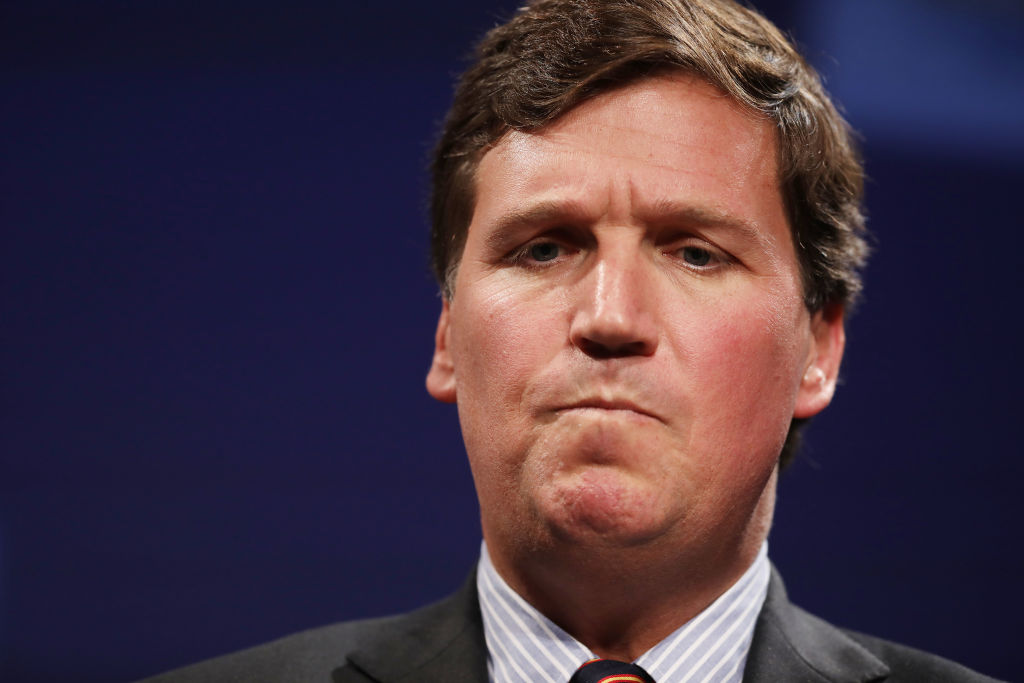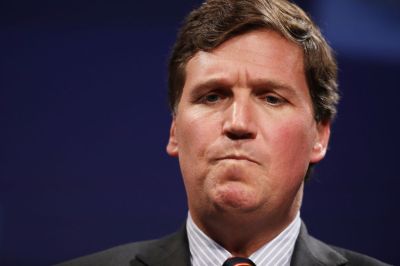If you search for “safe space” on Fox News’ website you’ll get over 46,000 results. Not all of them are about those woke snowflakes who need trigger warnings and cry rooms. But a whole lot of them are.
For instance, in 2017, shortly after Donald Trump’s inauguration, Tucker Carlson grilled a college professor about a student who came into her classroom crying about the election. “As the adult shouldn’t you say, ‘You know, it was an election, and it was democratic, and nobody got cancer, nobody died, and maybe you should toughen up a little?’”
Would that Carlson and the rest of Fox’s leadership had a similar attitude toward their own audience, the average age of which is 56.
“A little more than a week after television networks called the 2020 presidential election for Joseph R. Biden Jr.,” the New York Times’ Peter Baker reported, “top executives and anchors at Fox News held an after-action meeting to figure out how they had messed up.”
The primary mess-up was the network’s decision to call Arizona for Joe Biden at 11:20 p.m. on Election Night. The call infuriated the Trump campaign and viewers alike.
Save for Washington managing editor Bill Sammon, who also served on the “Decision Desk” that made the call, attendees at the meeting believed the Arizona announcement hurt Fox’s “brand” – not because they got it wrong, or even because they got it right. It hurt the brand because it hurt peoples’ feelings.
That’s it. Calling Arizona had no real-world effect. Arizona’s polls—and polls everywhere except for solidly Democratic Hawaii—were closed. It was a bit like telling a fan who recorded the Super Bowl that his team lost before he had a chance to finish watching the game. It hurt feelings, but no one wanted to tell the audience to “toughen up.”
Of course, Trump himself was angry for another reason. He’d encouraged his voters to vote on Election Day so he could claim to be ahead that night and declare victory before mail-in votes were counted the next day. He thought he could then win in the courts or Congress. As Steve Bannon admitted before the election, this was always the plan. But the Arizona call made it harder to claim he was ever beating Biden.
It's unclear whether some Fox opinion hosts were complicit in this scheme or simply useful idiots. But there’s no evidence the executives were in on any of that. Their overriding concern was simply not to upset the viewers and thereby lose them to upstart pro-Trump rivals One America News Network and Newsmax, which were all too happy to be safe spaces for election fraud lies.
At the meeting, Martha MacCallum, who co-anchored election coverage with Bret Baier, said of the Arizona call, “There’s just obviously been a tremendous amount of backlash, which is, I think, more than any of us anticipated.” A “loud faction of our viewership,” saw the call as an affront, she said. “We are still getting bombarded,” Baier said. “It became really hurtful.”
Both MacCallum and Baier argued for a “layer” of decision-making that would prevent such backlashes in the future.
Thanks to revelations from Dominion Voting System’s defamation lawsuit against Fox (where I was a contributor for more than a decade), we know that Fox leadership believed protecting Fox’s “brand” as a Trump enabler was more important than being honest with the audience—specifically about claims that the election was “rigged.” Indeed, even expressing skepticism was frowned upon. (Carlson continues to mislead his audience, even after his real positions have been revealed in the Dominion documents.)
Sammon resisted retracting the call, to the consternation of Fox CEO Suzanne Scott. In an email to a colleague, she complained that Sammon failed to understand “the impact to the brand and the arrogance in calling AZ” and it was his job “to protect the brand.” Sammon believed his job was to, well, do his job as a journalist. He and Chris Stirewalt, the political editor (and now a Dispatch contributing editor), were forced out because they violated the audience’s safe space.
In 2018, Fox revealed a new slogan, “Real News. Real Honest Opinion.” In the promotional ad, Carlson says “Fox is the one place where dissent is allowed.”
But when Jacqui Heinrich, a Fox reporter, fact-checked Trump’s stolen-election lies, Carlson, who privately acknowledged he agreed they were lies, nonetheless texted colleagues: “Please get her fired,” adding, “It needs to stop immediately, like tonight. It’s measurably hurting the company. The stock price is down. Not a joke.”
Humor, of course, is in the eye of the beholder, but it’s hard not to chuckle at all the mockery of “safe spaces” now.







Please note that we at The Dispatch hold ourselves, our work, and our commenters to a higher standard than other places on the internet. We welcome comments that foster genuine debate or discussion—including comments critical of us or our work—but responses that include ad hominem attacks on fellow Dispatch members or are intended to stoke fear and anger may be moderated.
With your membership, you only have the ability to comment on The Morning Dispatch articles. Consider upgrading to join the conversation everywhere.